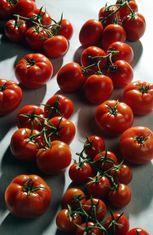
LAVA, which markets under the Flandria label has reported a drop in volume for apples and pears as a result of persistent drought. The reduced pear crop follows a normal to fairly good season in 2002-2003, but the fall is thought to be relatively limited in Belgium compared with other European countries, particularly France, the UK and Portugal.
Conference pears are expected to be smaller this season and although experts at Belgian fruit auctions believe it is still too early to predict how the reduction will affect the retailers, a rise in price is the logical consequence of a drop in supply.
For Belgian apples the downturn in production is the greatest of all the EU countries, reflecting the dominant position of Jonagold and Jonagored varieties that account for 70 per cent of Belgian production. A combination of frost at the end of April and dry easterly winds in May resulted in problems with pollination and the fruit crops from each tree were down by an average of five kilograms. Belle de Boskoop and Elstar cultivars were similarly affected while Golden Delicious and Cox are expected to equal the level of production achieved last season.
Jonagold and Jonagored are expected to produce a lot of thick to very thick fruit, and in light of three disappointing seasons, experts anticipate that this year's harvest results will speed up the introduction of new varieties in Belgian apple production. It is believed that Belgian growers will now be more inclined to opt for new cultivars, especially Pinova, Gala, Braeburn and Green Star.
There is better news for vegetables with an increase in leeks expected. Belgian endive, which has been fetching low prices for months will also increase in supply. Two large peaks in round lettuce are expected with around four millions heads of lettuces expected in weeks 45 and 46 and 4.5 million heads a week in weeks 50 to 52.
After record figures last summer, the supply of Flandria vine tomatoes will fall to 1.5 million kg a week in weeks 36-39. This will be followed by a further peak at 2 million kg in weeks 40 and 41. Loose tomatoes look to be in steady supply with the season finishing in week 51. Cauliflower supplies between weeks 41 add 45 look promising with 400,000 to 600,000 heads a week predicted while the current scarcity on the European market of Lamb's lettuce should guarantee steady demand.



